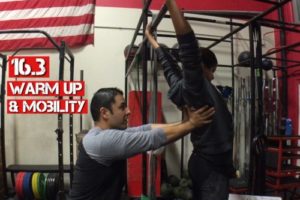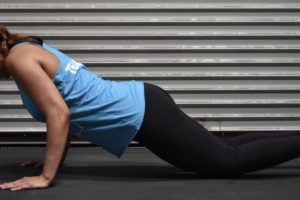
Recently I had to discuss with my husband the difference between pain and soreness. He asked me “Why? If it hurts, it hurts. It doesn’t matter if it is pain or soreness.” FALSE. It does matter because pain and soreness mean two very different things.
Exercise-induced muscle soreness is a normal, healthy reaction but pain may indicate something more serious. It is important to know the key differences between the two in order to better understand what your body is trying to tell you.
1. Type – Soreness typically occurs in the muscles and on both sides of the body. It can be described as feeling tired, dull, tight or achy. It is usually diffuse, meaning it is difficult to point to one exact spot. On the other hand, pain is very localized and pin-point. It is described as sharp or stabbing and can be in the joint or muscle, typically one-sided.
2. Time Frame – Soreness can occur during exercise, but typically peaks 24-72 hours after. It can last anywhere from 3 days to 2 weeks depending on how your body is recovering. If you are experiencing pain, this can linger greater than 3 days and may not go away, especially if it is not addressed sooner.
3. Improving Factors – You will know you are experiencing normal muscle soreness if it improves with movement. Sore muscles like to be stretched and moved because it gets the blood flowing to the muscles, aiding in the recovery process. Pain typically improves with ice, rest and medication in the beginning stages.
4. Worsening Factors – The absolute worst thing you can do for soreness is sit still and rest. Our muscles need to move and if you are experiencing muscle soreness, lack of movement could potentially increase or prolong the soreness. Pain is typically the exact opposite and worsens with movement even after appropriate rest and recover. It is also important to be aware of any potential changes to your exercise routine that could have caused pain; for example: poor mechanics, heavy weight or increasing mileage.
Understanding these differences will help you determine if your body is experiencing a normal response to exercise or if you need to take 24-72 hours to rest and reevaluate what your body is experiencing.
As always, we hope this helps! If you have any questions or if you would like to read about certain topics, feel free to send us an email at TeamSP@SportsPerformancePT.com.
-Dr. Melanie

STAY CONNECTED
Instagram: CLICK HERE
Facebook: CLICK HERE
YouTube: CLICK HERE
Podcast: CLICK HERE
TUNE IN TO OUR PODCAST












